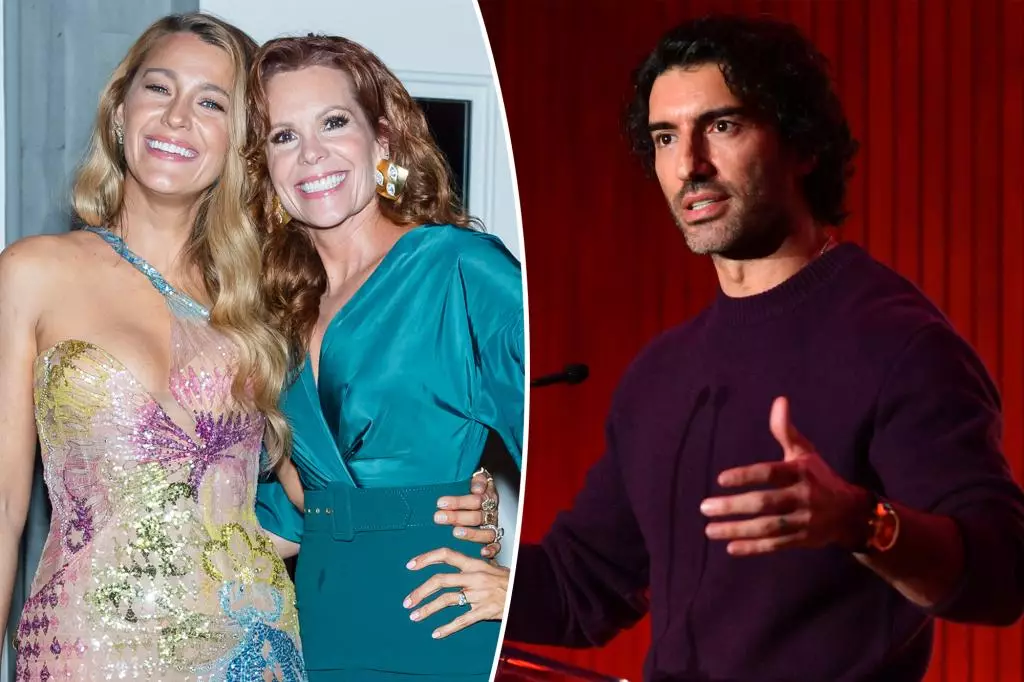The entertainment industry has often been a breeding ground for controversies, particularly regarding the treatment of women. Recent events surrounding Blake Lively and Justin Baldoni have brought to the forefront the delicate issues of sexual harassment and the power dynamics at play in Hollywood. Lively, widely known for her role in the hit series “Gossip Girl,” has taken a bold stand by filing a formal complaint against Baldoni, her co-star in the movie adaptation of “It Ends With Us.” This article aims to analyze the implications of this case and the broader societal questions it raises.
Lively’s grievance emerged amidst her promotional efforts for the film, which deals with profound themes such as domestic violence. According to reports, Lively accused Baldoni of engaging in troubling behavior on set, including showing her inappropriate material and discussing personal sexual history. Such allegations are alarming and serve as a reminder of the challenges women face in the entertainment industry. Moreover, the fact that an “all-hands” meeting had to be called to address these issues signifies a toxic environment that should not be tolerated in workplaces, let alone in a creative industry that promotes storytelling.
It’s crucial to note how these allegations reflect broader patterns of behavior that women often endure. The complaint highlighted Lively’s insistence on having an intimacy coordinator present for all intimate scenes—a proactive measure aimed at establishing boundaries that should fundamentally exist in any professional setting. Such protocols not only protect the individuals involved but also promote a culture of mutual respect, a factor that has been conspicuously lacking in past, and often current, practices within the industry.
Robyn Lively, Blake’s sister, has emerged as a vocal supporter throughout this ordeal. Utilizing her social media platforms, she expressed solidarity for her sister and highlighted the seriousness of Blake’s claims. Her emphasis on specific phrases from a New York Times article about the allegations—such as “people really want to hate on women”—illustrates the social commentary that surrounds these issues. Robyn’s statements resonate with a much-needed dialogue about how women are often vilified in the wake of making rightful claims against powerful men.
Moreover, the familial support provided by Robyn illustrates an often-overlooked aspect of such allegations: the emotional and psychological toll they take on the individuals involved. In a world rife with judgment and scrutiny, having a voice of encouragement can act as a fortress against external pressures. Robyn’s active engagement not only showcases personal loyalty but also serves to uplift the narrative around Blake, framing her as a victim rather than avoiding engagement with the complexities of the situation.
Baldoni’s legal representation responded to the allegations with vehement denials, calling the claims “categorically false” and framing them as an intentional attempt to damage his reputation. This response is not uncommon in cases of sexual harassment; often, those accused attempt to deflect allegations by undermining the credibility of the accuser. Such tactics can dissuade other victims from coming forward, perpetuating a cycle of silence and complicity that allows harassment to persist unchallenged.
Furthermore, Baldoni’s subsequent exit from his talent agency, WME, post-allegation suggests that the industry is beginning to take these claims seriously. There’s a growing recognition among agencies that representing individuals accused of such serious conduct can pose reputational risks. For Lively, still being represented by WME, this raises questions regarding the support actors receive post-allegation and the broader implications for the industry.
Ultimately, the unfolding drama between Blake Lively and Justin Baldoni serves as a sobering reminder of the battle for justice that many women face today. As society looks towards potential reforms, one can only hope that this case spurs a more extensive discussion on women’s rights, respect for boundaries, and the importance of safe working environments in every sector. The entertainment industry is at a crossroads; it has the opportunity to create a culture that champions respect and equity, but doing so requires the courage to confront and dismantle age-old power dynamics.
As the situation continues to evolve, it is crucial to remain vigilant and supportive of individuals like Blake Lively who are brave enough to speak out. Their stories have the power to change the narrative and inspire change far beyond the silver screen. The true measure of an industry’s integrity lies in its response to crises like these, and the time for that response is now.

